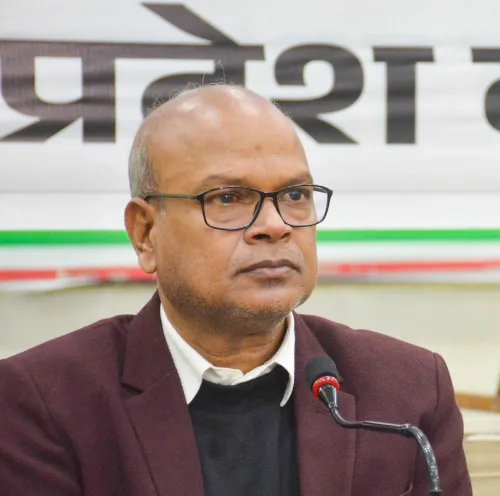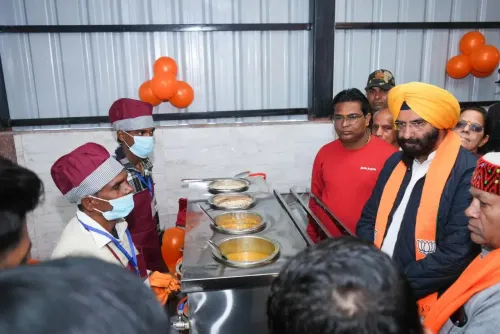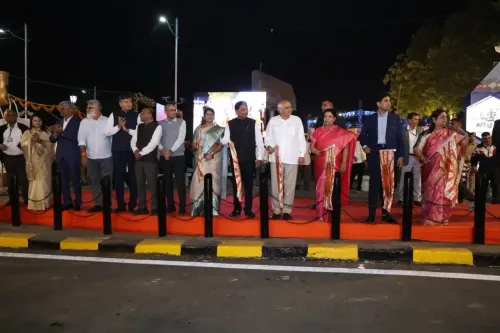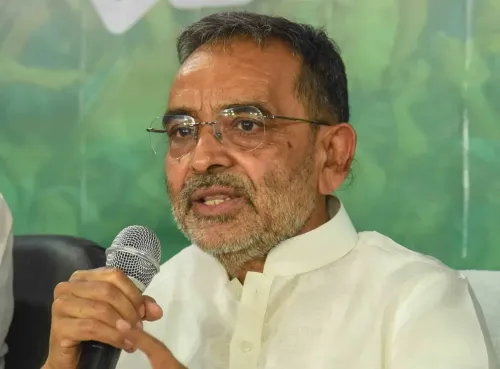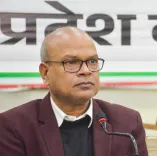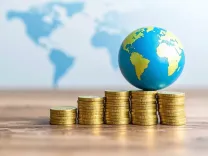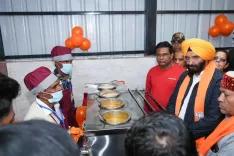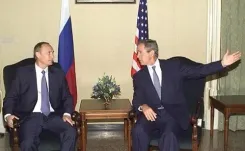Will the Youth Spiritual Summit Spark a Youth-Led Movement Against Drug Abuse?
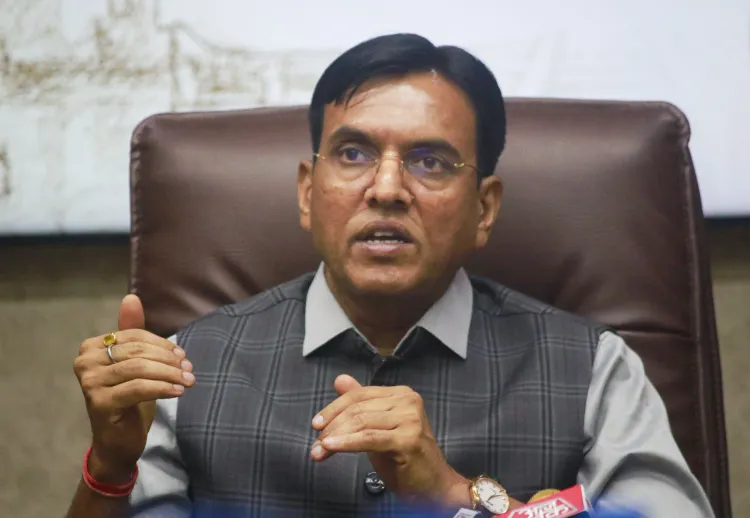
Synopsis
Key Takeaways
- The Youth Spiritual Summit aims to empower youth in the fight against drug abuse.
- It will bring together over 500 delegates from various organizations.
- The event will conclude with the 'Kashi Declaration', outlining a roadmap for action.
- Government initiatives will be highlighted during the summit.
- The summit seeks to create a stronger, more resilient movement against addiction.
New Delhi, July 19 (NationPress) Union Minister Mansukh Mandaviya declared that the Modi government's commitment to establishing a Nasha Mukt Bharat has made significant progress with the impending 'Youth Spiritual Summit' in Varanasi.
Mandaviya took to social media to share his op-ed, 'A youth outreach in the battle against drug abuse', initially published in a leading national newspaper.
This article emphasizes the critical role that India's youth can play in spearheading the battle against drug addiction.
The Prime Minister's Office also disseminated the article on social media platforms.
Organized by the Ministry of Youth Affairs and Sports, the Youth Spiritual Summit is set to occur from July 19 to 20 in Varanasi, Uttar Pradesh.
Under the theme 'Nasha Mukt Yuva for Viksit Bharat', the summit will convene more than 500 youth delegates from around 100 spiritual and socio-cultural organizations nationwide.
Taking place on the hallowed banks of the River Ganga, the summit aims to harness India's rich spiritual heritage and youthful dynamism into a nationwide initiative against substance abuse.
In his article, Mandaviya stated, 'India possesses one of the largest youth populations globally, and for a nation to thrive and develop, empowering its youth is essential. Prime Minister Modi has consistently stressed that for India to achieve a Viksit Bharat by 2047, our yuva shakti must be empowered and actively involved in nation-building.'
Addressing the escalating issue of addiction among the youth, Mandaviya emphasized that protecting young individuals from the clutches of substance abuse is one of India's most pressing challenges.
'A study shows that one in every five Indians aged 10 to 24 has experimented with drugs. A report by the All India Institute of Medical Sciences (AIIMS) indicates that over 850,000 children in India are battling drug addiction. These statistics are incredibly alarming and demand immediate, collective action,' Mandaviya remarked.
He also pointed out the government's initiatives to tackle substance abuse, including the Nasha Mukt Bharat Abhiyan, the creation of Integrated Rehabilitation Centres for Addicts (IRCAs), Outreach-cum-Drop-In Centres (ODICs), awareness campaigns in educational institutions, operations against drug cartels, and the establishment of health and wellness centers.
Advancing the mission, Mandaviya noted the Yuva Spiritual Summit, which he described as a platform that 'aims to establish a youth-led national movement against substance abuse.'
The summit will bring together youth representatives from more than 100 spiritual organizations across India. Key government entities, including the Ministry of Health and Family Welfare, the Ministry of Social Justice and Empowerment, the Ministry of Culture, the NCB, and others, will be actively involved in the event.
The event will conclude with the unveiling of the 'Kashi Declaration', which will outline a five-year roadmap for the national drug-free India campaign.
'This will delineate strategies to prevent youth from succumbing to substance abuse, provide support mechanisms for those already affected, and enhance awareness campaigns nationwide to foster a stronger, more resilient movement against addiction,' Mandaviya added.
Praising Prime Minister Narendra Modi for this initiative, the Union Minister remarked, 'PM Modi envisions an India that embodies the dreams and aspirations of the Amrit Peedhi. In line with that vision, this initiative by the Ministry of Youth Affairs and Sports represents a significant step towards not only safeguarding young lives from addiction but also empowering them to participate in nation-building.'
Mandaviya concluded by stating that the summit is not merely an event, but the dawn of a new national awakening, which will 'spark a spirit of discipline, moral integrity, and social responsibility among young citizens.'


